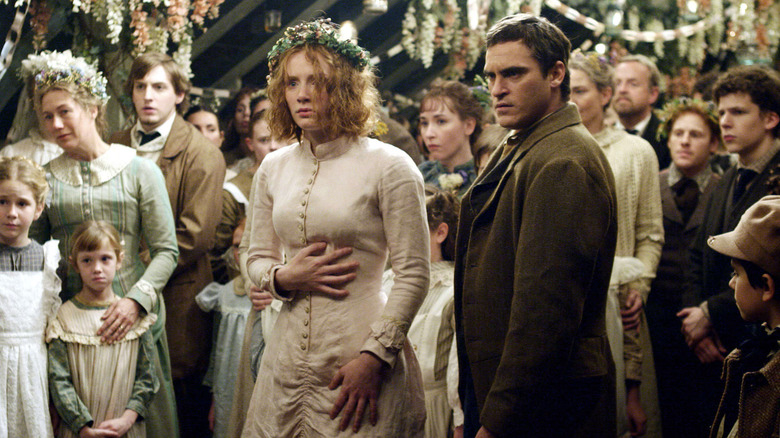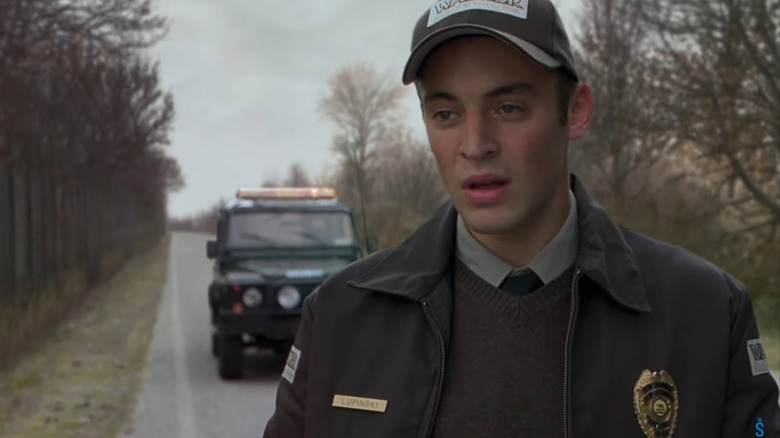M. Night Shyamalan's Original Ending For The Village Was Too Controversial
Major spoilers ahead for "The Village."
Often cited as one of the first real indications that writer/director M. Night Shyamalan was losing his touch, the 2004 film "The Village" was famous for its divisive twist. After spending the entire movie in a secluded 1800s community, it's revealed that the film actually takes place in the present day, and the village's youths are unwitting prisoners of a living history museum. Blind villager Ivy (Bryce Dallas Howard) briefly escapes the town and gets help from a 21st century park ranger employed to guard the perimeter, but she doesn't figure out the truth and returns home none the wiser. The village's founders are able to keep the lie going long after the credits roll.
It's bleak and unsatisfying, sure, but as the years go by a lot of viewers have come around to it. /Film's chief film critic Chris Evangelista defended the movie in 2017, calling it "a beautiful, melancholy film that dares to end on a note that's simultaneously negative and hopeful; an ending not easily shrugged off or pushed aside."
"The Village" may not have been remembered so fondly by its defenders, however, if Shyamalan had gone with his original ending. In a recent interview on the ReelBlend podcast promoting his latest film, "Trap," the director explained how he initially planned to make Ivy's introduction to the modern world far more jarring, with very different consequences:
"So basically, [Ivy] came out and everyone found out about it, and it kind of basically blows up, essentially: I was thinking about putting in '99 Problems' ... She comes in, the car almost hits her, but the guy driving it (which was me by the way) was listening to Jay-Z's '99 Problems.'"
The Village has 99 problems, but Jay-Z isn't one
"So basically, the value system just goes flip at the end," Shyamalan continued. "It was so polarizing, because people got offended, because you're hearing cursing. It's like immediately you went from 'Little House on the Prairie' to 'boom, Jay-Z.'"
Admittedly it's easy to see the appeal of such a scene: the audience badly wanted Ivy to learn the full truth of her town and break out of the system, so a finale in which she's fully confronted with present-day culture and technology would be cathartic and thrilling. Still, there's something to be said about the more subtle, frustrating finale we got. The park ranger we meet is clearly from 2004, but outside of his car and the radio he uses, the movie's not flashy about the way it conveys this. The scene is ultimately supposed to be an emotional one, not a funny one, so the choice to not blast Jay-Z straight into poor Ivy's Amish ears seems like a smart call.
"I thought a long time about putting it on the Blu-ray," Shyamalan said, "And I intentionally didn't, because it was different and it would make such a ... it would change your memory of the movie so much, because it was so alternate."

